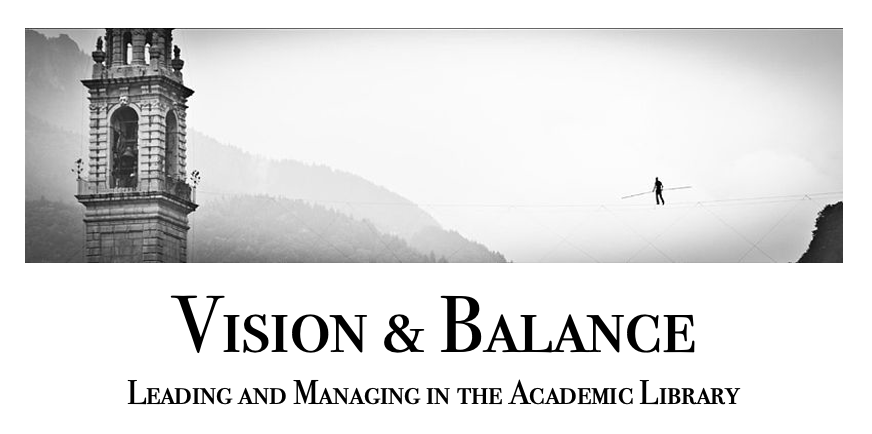A few weeks ago I introduced a new occasional feature in the Vision & Balance newsletter: what I'm calling "Two and a Half Cheers." These are posts that reflect briefly on concepts or practices that are commonly underappreciated or denigrated, but which I believe deserve more celebration than they often get – even while recognizing their limitations or downsides. My first installment considered the oft-maligned concept of efficiency.
Lately I have found myself thinking a lot about "niceness" in the context of library leadership and management. The term "nice" has become almost an epithet in recent years – it's a term used frequently as a synonym for "shallow" and "insincere." When complimenting people (and when writing evaluations) we tend to veer away from the word "nice" in favor of terms like "civil" or "collegial."
I would like to suggest that niceness is undervalued, not only in broader society but also in professional settings. Niceness and civility are not the same thing; civility, it seems to me, represents a rock-bottom standard of behavior to which all should be held. (It reminds me a bit of the bumper stickers I regularly see that enjoin us all to "coexist" – which always makes me think "Seriously? Is that what we're aspiring to now?".) Collegiality comes closer, in that it implies not just civility but also cooperation and responsiveness. But you can be civil and collegial without being nice, and I think niceness matters.
Here's my thinking: to me, niceness implies communicating actual care for the other person. Civility means not being actively mean; collegiality means working effectively together and pulling your own weight. But the nice person goes out of his or her way to show that they care about how you feel, or about how the work is impacting you; the nice person offers to take on a burden to lighten yours; the nice person shows his or her pleasure in working with you. At its best, niceness is synonymous with kindness. (In fact, in my experience people often use "nice," in a sneering way, to characterize kindness when it is manifest in people they don't like.) We all spend the majority of our waking hours at work – having nice colleagues makes a big difference in the quality of those hours.
Is it possible to exhibit fake niceness, or to weaponize fake niceness for nefarious purposes? Of course it is. Is niceness sometimes a mask worn by superficiality and unseriousness? Sure. That's why this is a "two and a half cheers" post rather than a "three cheers" one. But you know what? It's possible to make bad pizza too. That doesn't mean pizza isn't important.
Two and a Half Cheers for Niceness
You know what? Niceness matters.
